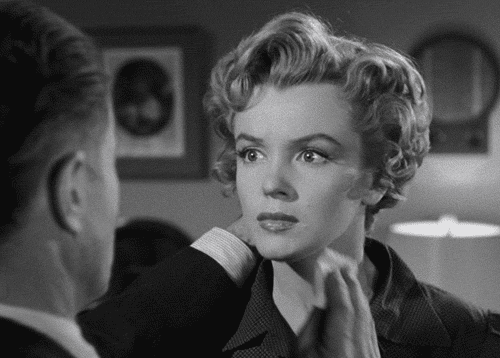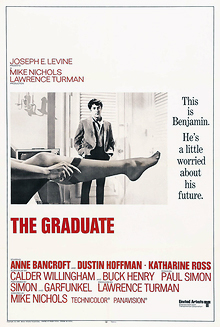A blog formerly known as Bookishness / By Charles Matthews
"Dazzled by so many and such marvelous inventions, the people of Macondo ... became indignant over the living images that the prosperous merchant Bruno Crespi projected in the theater with the lion-head ticket windows, for a character who had died and was buried in one film and for whose misfortune tears had been shed would reappear alive and transformed into an Arab in the next one. The audience, who had paid two cents apiece to share the difficulties of the actors, would not tolerate that outlandish fraud and they broke up the seats. The mayor, at the urging of Bruno Crespi, explained in a proclamation that the cinema was a machine of illusions that did not merit the emotional outbursts of the audience. With that discouraging explanation many ... decided not to return to the movies, considering that they already had too many troubles of their own to weep over the acted-out misfortunes of imaginary beings."--Gabriel García Márquez, One Hundred Years of Solitude
Search This Blog
Showing posts with label Anne Bancroft. Show all posts
Showing posts with label Anne Bancroft. Show all posts
Thursday, January 2, 2025
Don't Bother to Knock (Roy Ward Baker, 1952)
Cast: Richard Widmark, Marilyn Monroe, Anne Bancroft, Donna Corcoran, Jeanne Cagney, Lurene Tuttle, Elisha Cook Jr., Jim Backus, Verna Felton, Willis Bouchey, Don Beddoe. Screenplay: Daniel Taradash, based on a novel by Charlotte Armstrong. Cinematography: Lucien Ballard. Art direction: Richard Irvine, Lyle R. Wheeler. Film editing: George A. Gittens.
Sunday, April 12, 2020
Nightfall (Jacques Tourneur, 1956)
 |
| Anne Bancroft and Aldo Ray in Nightfall |
Nightfall is a well-made thriller strengthened by ingenious plotting: It never lets the viewer know too much too soon, keeping the motives and even the identities of its characters hidden until the right time to reveal them. Beefy Aldo Ray plays the protagonist, whom we know as Jim Vanning until his past is disclosed. Vanning, it turns out, is on the run, accused of murder but also trying to dodge the real killers, a pair of bank robbers played by Brian Keith and Rudy Bond, who think that Vanning has absconded with the loot from their heist. But Vanning doesn't know that he's also being tailed by an insurance investigator, played by James Gregory. In a bar, Vanning meets Marie Gardner, played by Anne Bancroft a few years before The Miracle Worker (Arthur Penn, 1962) won her an Oscar and made her a star. She's a model and he's a freelance magazine illustrator, so they hit it off, not so fortunately for her because at that point the robbers show up, ready to beat the location of the money out of Vanning. Marie gets caught up in the plot as Vanning eludes the thugs and hides out with her. Eventually, they go on the run, joined by the insurance investigator, who is perfectly happy to help Vanning recover the money and prove his innocence. It all moves along swiftly, thanks to Jacques Tourneur's direction, and handsomely, thanks to the cinematography of Burnett Guffey, who is equally adept at filming the noir shadows of the city and the bright snowy landscape of Wyoming where the chase winds up.
Tuesday, April 2, 2019
Torch Song Trilogy (Paul Bogart, 1988)
Torch Song Trilogy (Paul Bogart, 1988)
Cast: Harvey Fierstein, Matthew Broderick, Anne Bancroft, Brian Kerwin, Karen Young, Eddie Castrodad, Ken Page, Charles Pierce. Screenplay: Harvey Fierstein, based on his play. Cinematography: Mikael Salomon. Production design: Richard Hoover. Film editing: Nicholas C. Smith.
Sunday, February 21, 2016
The Graduate (Mike Nichols, 1967)
The Graduate and It Happened One Night (Frank Capra, 1934) are both fine examples of the "runaway bride" trope, but there the resemblance ends in irony. In the latter, Ellie (Claudette Colbert) balks at the altar and runs away, veil and train streaming, to the arms of Peter (Clark Gable), but we never see them together: The film ends with the sound of a toy trumpet and we see the "walls of Jericho" blanket falling. It's a gratifying "happy ending," in which order is brought out of chaos, which is the way a romantic comedy is traditionally supposed to end. But in The Graduate the situation is reversed: The wedding that is supposed to restore order ends in chaos, as Benjamin (Dustin Hoffman) arrives to carry off Elaine (Katharine Ross), interrupting the nuptial kiss after the wedding is over. And then we see them together on the bus, as Nichols holds the camera on their faces just a little longer than he might: The smiles on their faces begin to fade, and uncertainty takes hold. We aren't supposed to wonder about what happens to Ellie and Peter, but we can't help feeling the chill of reality fall over Elaine and Benjamin. Watching The Graduate today, I find it a troubling, even cynical treatment of some serious themes. Benjamin, for example, seems to be designed as a comic figure, with his little gulps and tics and his awkwardness when faced with the seductive Mrs. Robinson (Anne Bancroft). But a more sympathetic viewer might diagnose him as clinically depressed, desperately being borne along by the tide of events, just as he's borne along by the moving sidewalk at the airport in the film's beginning, and then trying to avoid the consequences of the freedom he has earned by graduating. He escapes from the adult world into his room, with its burbling fish tank that foreshadows his underwater escape when he's expected to "perform" in the scuba gear he's been presented by his parents. When he does commit himself to a course of action, deciding suddenly and almost arbitrarily that he will marry Elaine, he has clearly lost his mind. And is there a sadder figure in movies than Mrs. Robinson, who lives in alcoholic denial of the disaster her life has become? Bancroft's performance in the scene in which Benjamin tries to get her to open up about her life is simply stunning. The screenplay by Calder Willingham and Buck Henry is the only really funny part of the film, with its classically quotable lines: "Plastics." "Mrs. Robinson, you're trying to seduce me. ... Aren't you?" "I think you're the most attractive of all my parents' friends." It's Nichols's direction that turns our attention to the reality undermining the comedy. The Graduate is often seen as a kind of twin to Bonnie and Clyde (Arthur Penn, 1967): two films that announce an epochal shift in Hollywood, upending audience expectations by addressing themselves to a more sophisticated young audience. As a satire on upper-middle-class life in the mid-20th century that masquerades as a romantic comedy, The Graduate was enormously influential. I just can't make up my mind whether that influence was for the good.
Subscribe to:
Comments (Atom)





.png)



.png)

.png)


.png)








